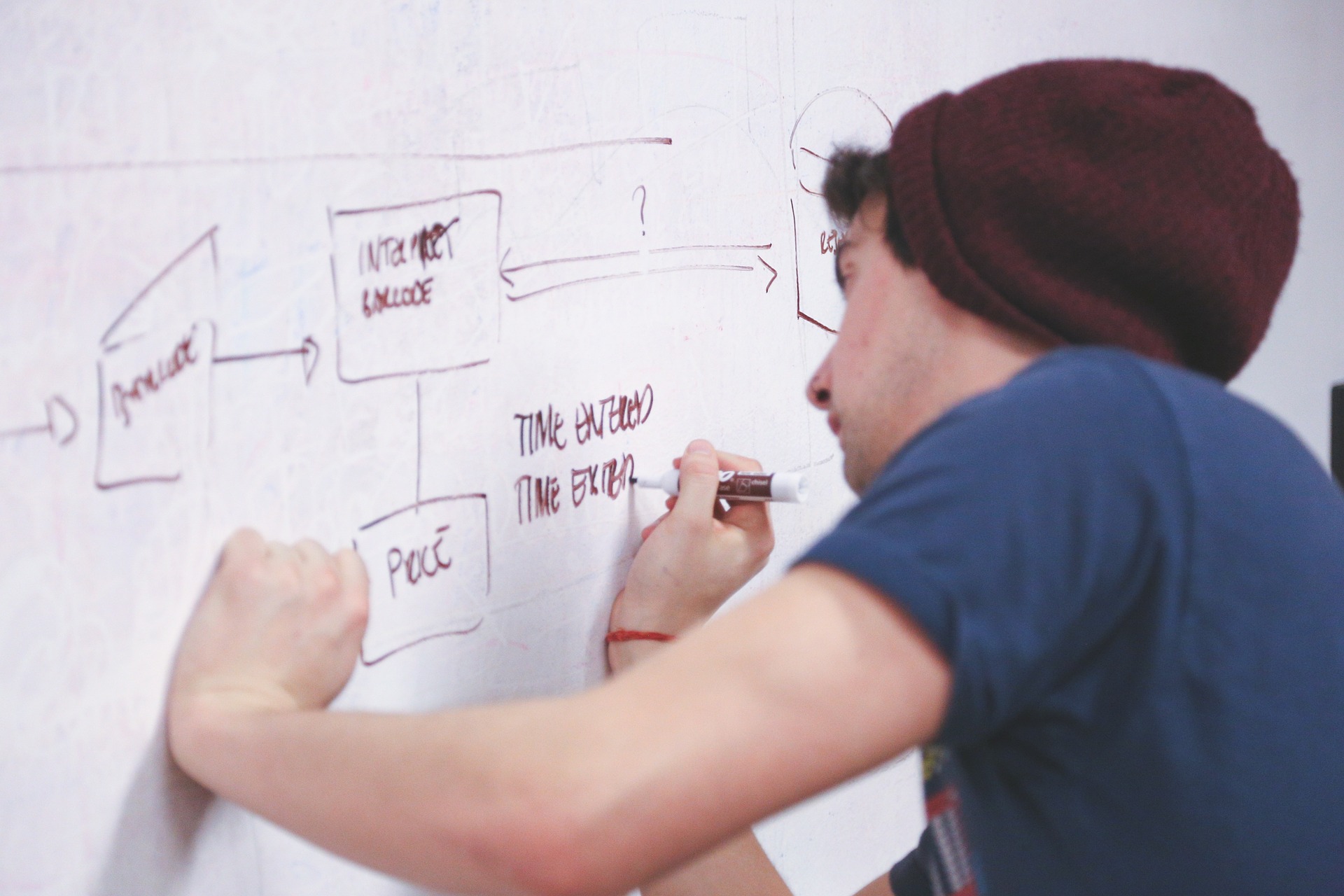
+44 1349 470002
United Kingdom
+44 1349 470002

Cart

 Enquire
Enquire
 ITIL® Practitioner
ITIL® Practitioner
 ITIL® Service Lifecycle - Service Transition
ITIL® Service Lifecycle - Service Transition
 ITIL® Service Capability - Operational Support And Analysis
ITIL® Service Capability - Operational Support And Analysis
 ITIL® Service Capability - Planning, Protection, And Optimization
ITIL® Service Capability - Planning, Protection, And Optimization
 ITIL® Service Capability - Release, Control & Validation
ITIL® Service Capability - Release, Control & Validation
 ITIL® Service Lifecycle - Service Strategy
ITIL® Service Lifecycle - Service Strategy
 ITIL® Service Lifecycle - Service Operation
ITIL® Service Lifecycle - Service Operation
 ITIL® Service Capability - Service Offerings & Agreements
ITIL® Service Capability - Service Offerings & Agreements
 ITIL® Service Lifecycle - Service Design
ITIL® Service Lifecycle - Service Design
 ITIL® Service Lifecycle - Managing Across The Lifecycle
ITIL® Service Lifecycle - Managing Across The Lifecycle




 Certified EU General Data Protection Regulation (EU GDPR) Foundation
Certified EU General Data Protection Regulation (EU GDPR) Foundation
 Certified EU General Data Protection Regulation (EU GDPR) Foundation and Practitioner
Certified EU General Data Protection Regulation (EU GDPR) Foundation and Practitioner
 Certified EU General Data Protection Regulation (EU GDPR) Practitioner
Certified EU General Data Protection Regulation (EU GDPR) Practitioner
 Certified Data Protection Officer (CDPO)
Certified Data Protection Officer (CDPO)
 Dealing with Subject Access Requests (SAR)
Dealing with Subject Access Requests (SAR)
 Dealing with Subject Access Requests (SAR) - An Executive Briefing
Dealing with Subject Access Requests (SAR) - An Executive Briefing
 EU General Data Protection Regulation (EU GDPR) Awareness
EU General Data Protection Regulation (EU GDPR) Awareness




 Programming & Database
Programming & Database

Managing Successful Programmes (MSP®) is a best-practice framework for delivering complex programmes in accordance with long term strategies. It was developed in recognition of the need for greater links between an organization’s longer-term strategy, objectives and goals and the projects being undertaken by that organization.
MSP defines Programme Management as "...the action of carrying out the coordinated organization, direction and implementation of a dossier of projects and transformation activities to achieve outcomes and realize benefits of strategic importance to the business".
It comprises a set of principles, a set of governance themes, and a process lifecycle called the transformational flow.
MSP is designed to support the implementation and adoption of change within any type of organization.
It offers a very pragmatic approach to programme management which ensures a strong leadership and governance structure is established and maintained. There is a strong emphasis is on Stakeholder Engagement and Benefits Realization Management throughout the method.
MSP has been implemented in both public and private sectors because it provides a number of benefits to the organizations undertaking programmes, including:
• a strong emphasis on the identification and realization of measurable benefits
• a focus on Stakeholder Engagement, ensuring that stakeholders have the opportunity to participate at the key times throughout life of the programme
• clear communication links between the delivery team and the operational teams who will take ownership of the finished products
• good governance as a significant part of the framework and which is instituted throughout the programme
• a method for managing the complex relationships between the interested parties in a significant, long term change initiative.
The MSP principles are the guiding obligations for good practice that a programme should follow if it is using MSP. These are derived from lessons, both good and bad, that can affect success. The principles provide a framework of good practice for those people involved in a programme – ensuring that the method is not applied in an overly prescriptive way or in name only, but applied in a way sufficient to contribute to the success of the programme.
| PRINCIPLE | DEFINITION |
| Remaining aligned with corporate strategy | A programme should maintain good links with what could be a very volatile corporate strategy |
| Leading Change | A programme represents a significant leadership challenge, and that leadership needs to be present at various levels in the organization |
| Envisioning and communicating a better future | A clear vision of the future needs to be created and then consistently communicated |
| Focusing on benefits and threats to them | Everything in the programme should be aligned to realizing the end benefits and thus satisfying strategic objectives |
| Adding value | A programme must add value to the sum of its projects to remain valid |
| Designing and delivering a coherent capability | Through its projects, the programme will deliver the capability required by the organization to deliver the change it requires |
| Learning from experience | A programme should be a ‘learning organization’, continually improving its performance throughout its life |
The nine Governance Themes represent topics which need to be addressed throughout the life of the programme. It is the control framework which enables the programme to deliver and ensures there is visibility for stakeholders.
The themes are:
This theme details the roles required to deliver the programme and its associated change.
The vision, defined by the Vision Statement, represents the better future which the programme is designed to deliver and provides a constant focal point for the team throughout the programme’s life.
Programmes attract a large number of stakeholders from a variety of backgrounds and with differing degrees of influence. The MSP framework ensures the stakeholders are identified and engaged in an appropriate manner to allow the participation and involvement of those who have an interest in the outcomes.
Benefits are defined as "...the measurable improvement resulting from an outcome which is perceived as an advantage by a stakeholder". The rigour with which an MSP programme addresses the management of benefits is one of the distinguishing features.
The Blueprint is a document which translates the Vision Statement into a detailed description of the capability which is required to enable the outcomes. The Blueprint defines the scope of the Programme Manager's authority by describing the current state of the organization together with the future capability which will be delivered through the Project’s Dossier.
Planning and Control are fundamental to the success of the programme. A Programme Plan is developed during the Defining a Programme process and contains many assumptions and estimates. These will be revised as progress is made.
The Business Case provides the ongoing test of the viability of the programme and justifies the investment in the programme. It provides the Sponsoring Group and Programme Board with confidence that the investment in the programme is still worthwhile.
This Theme covers the identification, management and escalation of risks and issues. This is an area familiar to project management, but approaches it from a programme perspective.
This Theme ensures that all management aspects of the programme are working effectively and appropriately.
The term Transformational Flow is used to describe a series of six processes which guide the programme management team through the programme. These processes are:
Identifying a Programme During ’Identifying a Programme’ the Programme Mandate is agreed by the stakeholders and developed into a more comprehensive document outlining the programme’s purpose.
Defining a Programme The detailed planning for the programme is undertaken during ‘Defining the Programme’. Once the Sponsoring Group refine and approve the Vision Statement, the Programme Board and supporting subject matter experts undertake a number of activities which culminate in the development of a Programme Plan (normally part of the larger and more comprehensive Programme Definition Documentation) and the Programme's Business Case.
Managing the Tranches Primarily the responsibility of the Programme Manager, Managing the Tranches implements the governance arrangements for the programme to each of the tranches.
Delivering the Capability This process is where the Programme Manager coordinates and manages the dossier of projects required to deliver the capability described in the Blueprint.
Realizing the Benefits The Business Change Manager(s) are responsible for integrating the outputs from the projects into the operational environment and thereby generating the expected outcomes and benefits.
Closing the Programme The purpose of each of the processes within the Transformational Flow is to ensure that each programme is managed in a consistent manner. The ‘Closing a Programme’ process is applied to ensure the work of the programme is completed and that any follow-on support and actions are in place to ensure the ongoing realization of the benefits.
Programme Management
As the rate of change increases, organizations that have learned how to transform themselves through effective leadership and strategic control are more likely to survive and prosper. Programme management is increasingly being recognized as a key tool to enable organizations to deliver their strategy and manage that transformation.
Managing Successful Programmes is the recognised framework for delivering those programmes.
If you would like to learn about how you and your organization can benefit from using MSP; and how we can help you implement the use of MSP through our training and support services, please contact us for an initial discussion.




Thank You For Your Enquiry.
Our representative will get in touch with you shortly.You can also:Call Us: +44 1349 470002
Email Us: info@pearcemayfield.com
Thank You For Your Enquiry.
Our representative will get in touch with you shortly.You can also:Call Us: +44 1349 470002
Email Us: info@pearcemayfield.com